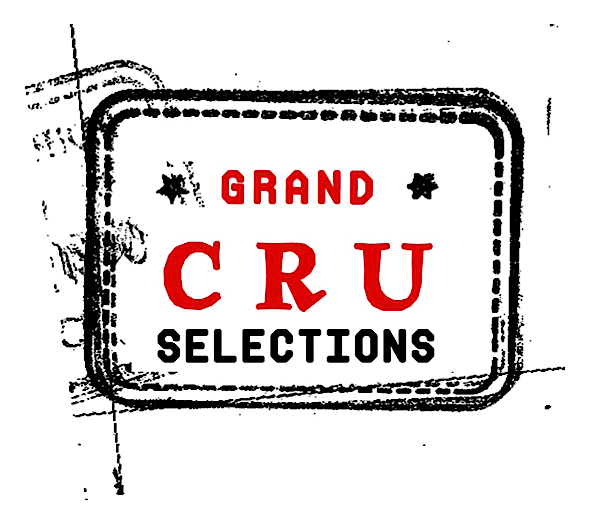Dalia Maris
Buttrio, Friuli, Italy
Giampaolo Venica
Dalia Maris is a project founded by Giampaolo Venica, whose family’s winery – Venica e Venica – is among the most historic and notable in Friuli. Giampaolo’s passion for wine has led him to some of the greatest tables and most renowned wine regions in the world and his evergreen curiosity and dedication is exemplified with Dalia Maris where he seeks his own, independent expression of Friulian terroir and native grapes by drawing on his experience in other wine regions, particularly the Rhone Valley.
“I will never reach the level of Jean-Louis, nor is that my goal. I’ve simply looked at some of Friuli’s best wine and thought intently on what I’m searching for: I want to bring justice to the potential of Friulian terroir in my eyes.”
-GIAMPAOLO VENICA
-
Dalia Maris takes its name from the Latin phrase “Stella Maris”, which is an expression meaning “look to the north star”; a phrase that encapsulates the freedom to navigate and signals hope. Dalia is Giampaolo’s grandmother’s name. As those close to him know, Giampaolo has spent several harvests with Jean-Louis Chave in St. Joseph in the Rhone Valley, heading straight to Hermitage directly after finishing harvest at Venica in 2017, 2018 and 2019. Looking to the Rhone Valley for inspiration, Giampaolo began to study more closely the wines he admires in Friuli and realized that many aren’t even made from native varieties, but from Chardonnay and Sauvignon that often see oak aging. Dalia Maris aspires to be something completely different, a unique take on what Giampaolo thinks the local grapes can express: power balanced by ripeness with the distinct, salty minerality that speaks to Friuli and creates a crunchiness in texture. While some would say that he is swimming against the tide with this project, Giampaolo feels that his time has come to lead and not follow. His first vintage was 2020.
-
Buttrio is a sub zone within Friuli’s Colli Orientali. It is arguably the warmest wine producing area of the region (average annual temperature between 50’ and 70’ F) with vineyards overlooking the village of Buttrio. Soils alternate layers of marl and thin sheets of sandstone which lend to wines with great body and refined tannic structures that tend to have great aging potential.
-
All farming is biodynamic, and harvest is carried out manually. The fruit comes from field blends (80% Friulano, 20% Ribolla Gialla) of several small parcels, ranging from 60 to 80 years in age.
-
Everything is pressed whole cluster very slowly and lightly for long periods. Low pressure is applied in the press, never more than 1.2-1.4 bars and with minimal rotation. By the end of the cycle, the skins are almost dry which is very important to Giampaolo. No sulfites are used in the winemaking process.
The Dalia Maris wines are aged in barrels from the same cooperage as Chave, Tonnellerie Mercurey, with whom Jean-Louis has a long-standing relationship. Seeing as the barrels are allocated, Jean-Louis sources them for Giampaolo when possible for the Dalia Maris project. The specific barrique used for Chave’s Hermitage Blanc, which Giampaolo sees fit for the Dalia Maris wines, has high quality oak and a light toast. Powerful varieties like Marsanne and Roussanne benefit greatly from the new barrels, just like Friulano.
Wines
B Bianco
Dalia Maris “B” is intended to be the headlining wine of this project. One might say “cru”, but only in a hierarchical concept, not referring to a single vineyard sight. The “B” stands for Buttrio, which is where the fruit came from in this year. It is a field blend of roughly 80% Friulano and 20% Ribolla Gialla. In 2020, “B” spent 12 months in barrel before moving to stainless steel. B has enormous spices and deep orange fruit, leaning towards dried apricot.
Piccolo Bianco
When the vintage permits, Giampaolo makes “Piccolo” – a blend of the same grapes from the same locations with the fruit that I felt did not deserve to be in “B”. Here he borrows another practice from Hermitage: vinify each plot separately, evaluate the quality, and decide how blending can achieve more complexity depending on the vintage.
Pignolo
Pignolo, meaning “fussy” in Italian, is a forgotten autochthonous varietal found in Friuli that traditionally becomes a strong, structured wine with an affinity for oak. Giampaolo’s version is a certified, natural wine spending 6 months on its skins in amphora and obtaining a depth that allows it to be cellared for years. A fussy varietal made in a completely natural style can be a formidable challenge, thus this wine is only bottled in certain years when conditions allow.

